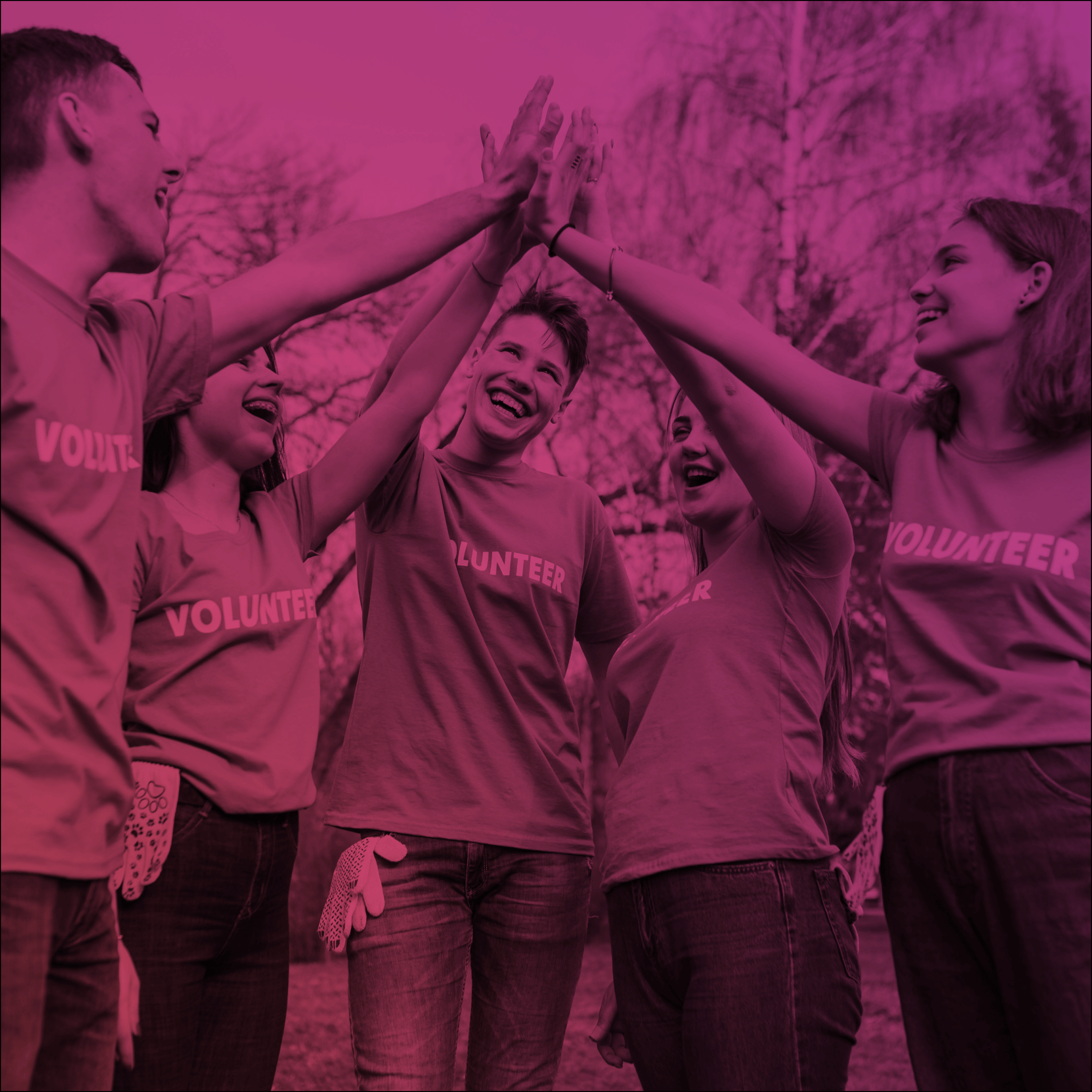Winning with Salesforce: Guide to Sports Event Management
In the high-energy world of sports, delivering a seamless and impactful experience for fans, athletes, and stakeholders is no small feat. Sports events management has become a sophisticated blend of logistics, technology, and fan engagement. For sports event managers, planners, and coordinators, the demand to deliver successful sporting events is higher than ever.
Leveraging technology platforms like Salesforce can transform how these professionals plan, execute, and measure their events. Whether it’s a local marathon or a global sports competition, Salesforce offers end-to-end support for sports event management professionals seeking to optimize operations, boost fan engagement, and create unforgettable experiences.
The Role of Sports Event Management Professionals
Sports events management professionals include sports event planners, managers, and coordinators. Each plays a critical role in turning an idea into a successful event. A sports event manager oversees the entire operation, from strategy to execution. Planners handle venue selection, team logistics, ticketing, and vendor coordination. Coordinators ensure seamless on-the-ground execution during the event.
Salesforce empowers these professionals by centralizing information, streamlining communication, and automating repetitive tasks. For example, event goals can be set and tracked within dashboards, project timelines can be managed collaboratively in real time, and communication with sponsors and teams can be tracked through integrated CRM features. These tools reduce errors and improve efficiency, ensuring that sports events run smoothly.
Planning and Execution of Sporting Events with Salesforce
Planning a sports competition or related event involves a series of complex steps. Salesforce simplifies this process with its powerful suite of tools:
- Event Planning and Scheduling: Use Salesforce to create detailed event roadmaps, assign tasks, and monitor progress. Calendar integrations ensure that project timelines stay aligned.
- Registration and Ticketing: Manage participant registration and audience ticketing seamlessly. Salesforce can integrate with third-party platforms to automate registration flows and issue e-tickets.
- Team and Volunteer Coordination: Track and communicate with teams, athletes, and volunteers using the Salesforce CRM. This ensures all parties are informed and organized.
- Vendor and Sponsor Management: Centralize all sponsor and vendor contacts, contracts, and communications. Automations can send reminders, follow-ups, and updates.
- Execution and On-Site Coordination: With mobile access to Salesforce, on-site coordinators can track real-time updates, troubleshoot issues, and maintain communication across teams.
By enabling sports event management professionals to handle every facet of the planning and execution process, Salesforce ensures that no detail is overlooked.
Boosting Fan Engagement Activities Through Salesforce
One of the most critical aspects of any sports event is fan engagement. Fans are the heartbeat of any sporting event, and engaging them effectively can turn a good event into a great one. Salesforce Experience Cloud offers powerful tools to personalize and automate fan engagement activities.
A sports event planner can gain a holistic view of each fan, tailoring communications based on preferences, behavior, and purchase history. Pre-event campaigns can include teaser videos, interactive polls, and early bird ticket discounts. During the event, you can send real-time updates, personalized notifications, and exclusive offers. Post-event, automated thank-you messages and feedback surveys help maintain long-term relationships.
Incorporating loyalty programs and exclusive content further deepens the connection with fans. With Salesforce, sports marketing becomes data-driven, targeted, and effective.
Maximizing Sponsor and Partner Collaboration
Sponsors are essential to the success of most sports events. Managing these relationships effectively is key to delivering value and ensuring long-term partnerships. Salesforce’s capabilities make it easy to manage sponsor relationships from initial outreach to post-event reporting.
With centralized dashboards, sports events coordinators can monitor sponsor deliverables, track communications, and measure ROI. Custom reports show how much visibility and engagement each sponsor received, helping demonstrate value clearly. Automated follow-ups and appreciation emails can be scheduled post-event to maintain positive relationships.
These features help sports event managers build trust and transparency with sponsors, encouraging repeat partnerships and financial stability.
Smarter Salesforce Event Management: New Features in AC Events Enterprise

Best Practices for a Successful Sports Event Using Salesforce
Whether you’re organizing a grassroots tournament or a large-scale international competition, applying a structured and technology-supported approach is essential. These best practices are grounded in years of experience across a range of sports competitions and are enhanced by the advanced capabilities of platforms like Salesforce.
- Set clear and measurable event goals: Begin by defining what success looks like for your sporting event. This may include metrics such as attendance targets, revenue from ticket sales, number of new fan sign-ups, or engagement rates on social media. In Salesforce, these goals can be set within custom dashboards and monitored in real time, allowing sports event manager to stay aligned with their strategic objectives.
- Align all stakeholders early using collaborative tools: Bringing together internal teams, external vendors, sponsors, and partners early in the planning phase is essential. Salesforce’s cloud-based collaboration tools enable seamless information sharing and real-time updates. Use Chatter, Slack integration, and shared dashboards to keep everyone informed and on track from day one.
- Map out detailed project timelines with Salesforce calendars: A detailed, structured project timeline is crucial for effective execution. Use Salesforce calendars to assign tasks, set deadlines, and visualize progress. Milestones can be automated with reminders and alerts, helping sports event managers anticipate potential delays and stay on schedule.
- Engage fans through personalized campaigns: Use Salesforce Marketing Cloud to design and deliver personalized, multichannel campaigns. Tailor messages based on fan preferences, ticket history, and past engagement. Dynamic content and automation workflows help you reach the right audience at the right time, creating buzz and driving participation before, during, and after the event.
- Track and optimize sponsor engagements: Manage sponsor relationships like you would customer accounts. Use Salesforce to document all sponsor interactions, track contract terms, and measure fulfillment of sponsorship deliverables. Custom reports and visualizations help demonstrate ROI and prepare you for stronger partnerships in future events.
- Debrief post-event using Salesforce analytics: After the event, conduct a thorough analysis using Salesforce analytics. Measure key performance indicators such as ticket sales, fan engagement, sponsor ROI, and operational efficiency. Share these insights with stakeholders to identify strengths, address gaps, and improve future events.
These practices ensure operational success and enhance the overall experience for fans, teams, and sponsors, setting the foundation for continued growth and excellence in sports event management.
AC Events Enterprise: A Versatile Solution for Event Management
AC Events Enterprise, available on Salesforce, is a powerful and flexible event management solution that supports a wide range of event types—from conferences and exhibitions to sporting events. For sports event management organizers, AC Events Enterprise offers customizable features for the demands of sporting events.

The platform supports complex registration workflows, real-time team and staff coordination, vendor and sponsor relationship management, and integrated marketing campaigns. Whether you’re organizing a youth sports tournament, collegiate championship, or large-scale professional sports competition, AC Events Enterprise helps streamline every aspect of the event lifecycle. With Salesforce-native integration, sports event planners can harness CRM data to create personalized fan experiences, automate workflows, and deliver measurable ROI to sponsors and stakeholders.

Its scalable infrastructure and flexible configuration make AC Events Enterprise a go-to solution for both recurring and one-off sports-related events. The ability to customize ensures that it grows with the needs of your organization and your audience.
Conclusion
Sports event management is evolving rapidly, and technology is at the forefront of that transformation. Salesforce provides the tools and infrastructure needed for sports event managers, planners, and coordinators to deliver seamless, engaging, and impactful sporting events.
From setting event goals and managing timelines to boosting fan engagement and optimizing sponsor relationships, Salesforce is a game-changer in the world of sports-related events. Whether you’re planning a local tournament or a major international sports competition, Salesforce empowers you to deliver exceptional experiences, every time. Contact us today for a personalized analysis of your case — we’ll come up with the best solution for you.
FAQ
What do sports event managers do?
A sports event manager is responsible for overseeing the entire lifecycle of a sports event, from initial planning to execution and post-event analysis. They coordinate with stakeholders, manage budgets, set event goals, supervise logistics, and ensure compliance with safety and legal standards. With tools like Salesforce, they can streamline communications, automate scheduling, and manage data for a more efficient and impactful event.
What is the best place to begin the sports event management process?
The best starting point is defining clear event goals and assembling a dedicated planning team. This foundation helps guide decisions related to budgeting, venue selection, scheduling, and marketing. Using Salesforce, you can establish goals in dashboards, assign roles and tasks, and track progress from day one.
What does an event coordinator do in sports?
A sports event coordinator handles the operational and logistical details of a sporting event. This includes coordinating setup, managing event staff and volunteers, overseeing on-site logistics, and resolving any issues that arise in real time. Event coordinators often work under the guidance of an event manager and use Salesforce to access real-time updates, communicate with teams, and ensure all activities run on schedule.
Is sports management lucrative?
Yes, sports management can be a lucrative career path, particularly as the global sports industry continues to grow. Salaries vary depending on experience, location, and the scale of events managed, but experienced sports event planners and managers—especially those skilled in using platforms like Salesforce—can command competitive salaries and enjoy diverse job opportunities across professional leagues, collegiate sports, and large-scale athletic events.





